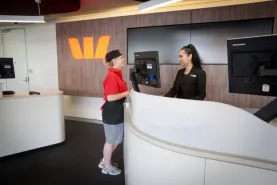Australia
Australian banks concerned over bank levy becoming a 'cookie jar'
The tax is a serious attack on the banks' commercial activities.
Australian banks launch 'strongly worded' attack on new levy
The banks could incur additional annual costs of $745m.
Check out what Westpac has to say about the new bank levy
It would result in a new cost of $65m in the second half of 2017.
Here's why Australia should extend the new levy to foreign banks
Doing so may raise up to US$4.6b.
Australian banks' profit growth to moderate in the coming months
Rising credit costs and slower credit growth are partly to blame.
Australian banks to pass on financial hit from levy to customers and shareholders
CBA CEO said "there is no middle option to absorb costs".
Australian banks to be hit by a $6.2b tax hike
The country's Big Four will have to pay up to $400m each every year.
Australian banks' profitability to suffer from tighter mortgage lending standards
The share of new loans with high loan-to-value ratio fell to 22.3% in December.
How will the new regulatory measures impact Aussie banks?
Regulators issued new limits on interest-only mortgages.
Aussie banks disallowed by regulator to boycott Apple Pay
The Australian Competition and Consumer Commission is concerned it would "reduce and distort competition".
Aussie banks to be hit hard by unpredictable Fed rate hikes
Banks may have to pass higher funding costs to its mortgage holders.
ANZ's unaudited cash profit up 8% to hit $1.54b
That's in the three months ended December 31.
Australian banks to focus on bargaining for access to Apple's contactless payment function
The banks' application to the regulators was previously focused on fees.
National Australia Bank's earnings slip 1% in 1Q17
Blame it on the 5% increase in costs.
Australian banks' dividend payout 'increasingly unsustainable'
Analysts recommend cutting dividends to preserve cash.
Australian banks haunted by financial instability risks from the property market
Banks will have to guard against any potential losses.















 Advertise
Advertise

















Commentary
Asia’s banks hold the mandate to innovate. Now they must earn it.
Why Asia's banks are rebuilding their credit infrastructure in 2026
Banks retreat, private credit advances: Asia Pacific’s quiet lending revolution
Human Sparsity Blockchain: A citizen-validated ledger for digital finance supervision
Will stablecoins disrupt the banking business?
Digital transformation starts with leadership